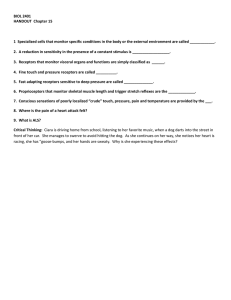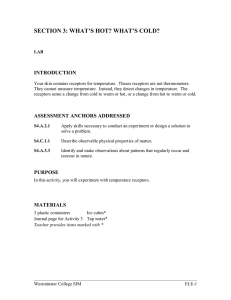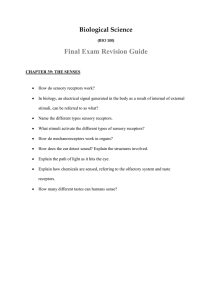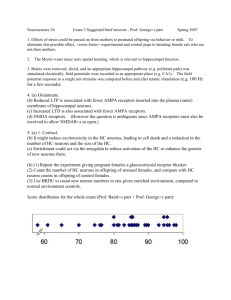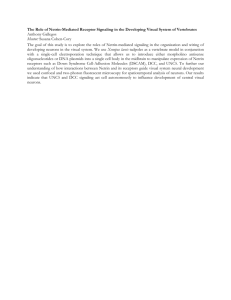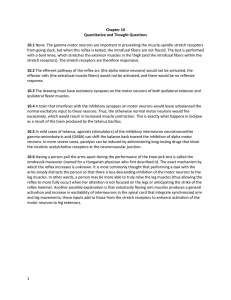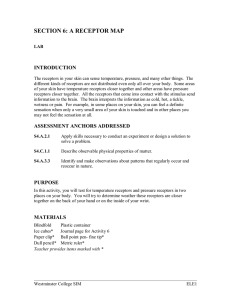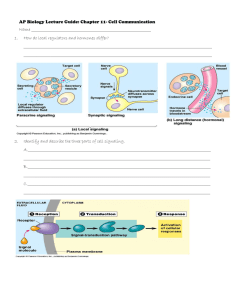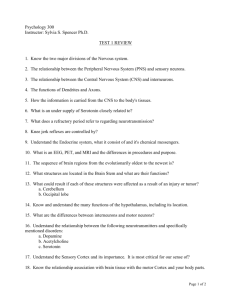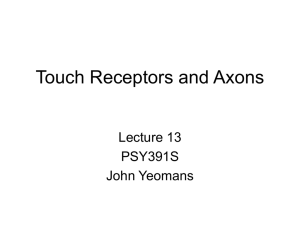BIOL 2401 STUDY POINTS HANDOUT Chapter 15 Specialized cells
advertisement
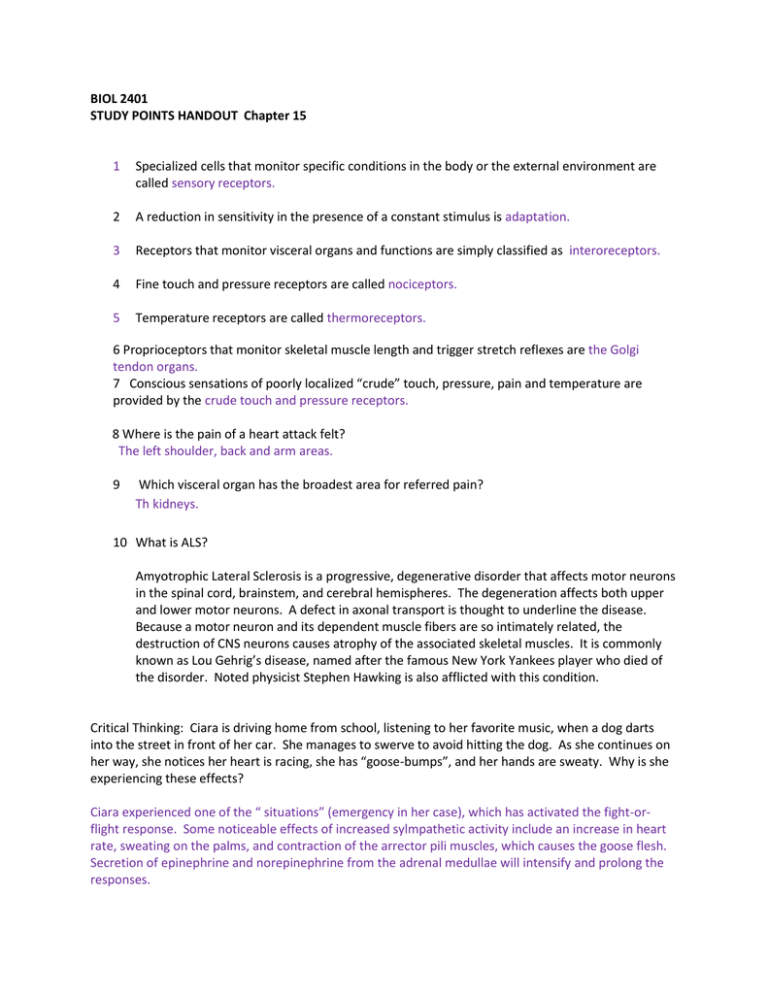
BIOL 2401 STUDY POINTS HANDOUT Chapter 15 1 Specialized cells that monitor specific conditions in the body or the external environment are called sensory receptors. 2 A reduction in sensitivity in the presence of a constant stimulus is adaptation. 3 Receptors that monitor visceral organs and functions are simply classified as interoreceptors. 4 Fine touch and pressure receptors are called nociceptors. 5 Temperature receptors are called thermoreceptors. 6 Proprioceptors that monitor skeletal muscle length and trigger stretch reflexes are the Golgi tendon organs. 7 Conscious sensations of poorly localized “crude” touch, pressure, pain and temperature are provided by the crude touch and pressure receptors. 8 Where is the pain of a heart attack felt? The left shoulder, back and arm areas. 9 Which visceral organ has the broadest area for referred pain? Th kidneys. 10 What is ALS? Amyotrophic Lateral Sclerosis is a progressive, degenerative disorder that affects motor neurons in the spinal cord, brainstem, and cerebral hemispheres. The degeneration affects both upper and lower motor neurons. A defect in axonal transport is thought to underline the disease. Because a motor neuron and its dependent muscle fibers are so intimately related, the destruction of CNS neurons causes atrophy of the associated skeletal muscles. It is commonly known as Lou Gehrig’s disease, named after the famous New York Yankees player who died of the disorder. Noted physicist Stephen Hawking is also afflicted with this condition. Critical Thinking: Ciara is driving home from school, listening to her favorite music, when a dog darts into the street in front of her car. She manages to swerve to avoid hitting the dog. As she continues on her way, she notices her heart is racing, she has “goose-bumps”, and her hands are sweaty. Why is she experiencing these effects? Ciara experienced one of the “ situations” (emergency in her case), which has activated the fight-orflight response. Some noticeable effects of increased sylmpathetic activity include an increase in heart rate, sweating on the palms, and contraction of the arrector pili muscles, which causes the goose flesh. Secretion of epinephrine and norepinephrine from the adrenal medullae will intensify and prolong the responses.
